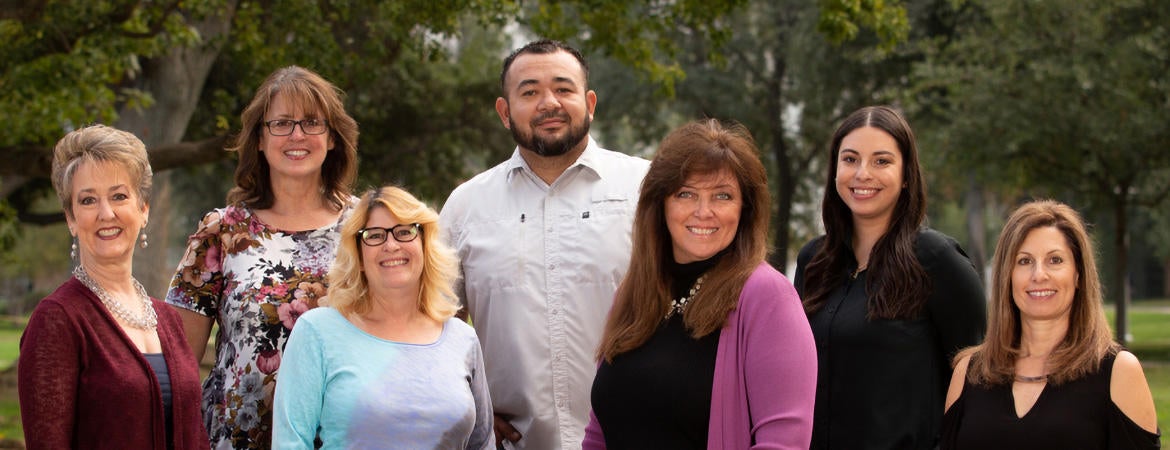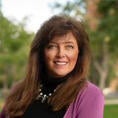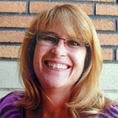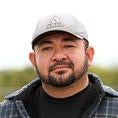
The CNAS Staff Advisory Committee (SAC) was formed during the COVID-19 campus closure and provided the opportunity for the committee to voice staff concerns and comments, share insight and feedback, and make suggestions and proposals to CNAS Dean Kathryn Uhrich. In this edition of the CNAS Blog, you’ll get to know each member of the CNAS Staff Advisory Committee.
Staff across CNAS are encouraged to reach out to any of the committee members and attend Dean’s Uhrich’s Office Hours offered every quarter.
CNAS staff members interested in being part of the CNAS Staff Advisory Committee, please contact one of the current members below for more information.
Denise Correll
Assistant Director, CNAS UAAC
College of Natural and Agricultural Sciences Undergraduate Academic Advising Center
denise.correll@ucr.edu
Sarah Dillon
CNAS HR Director
Harvest Shared Services
Profile
Lisa Charles
Administrative Assistant III (assistant to Divisional Deans Katherine Borkovich, Isgouhi Kaloshian, and Jose Wudka
CNAS Dean's Office)
lisa.charles@ucr.edu
Margarita Flores
Contracts and Grants Analyst
BMPN - Biochemistry, Microbiology and Plant Pathology, and Nematology
margarita.flores@ucr.edu
Rebecca Ryan
Research Admin 3
Chemistry
Staff Profile
Sherice Underwood
Financial Administrative Officer
EMN Administrative Unit
EMN Website
Richard Zapien
R'Garden Manager
Agricultural Operations
UCR R'Garden Website
How long have you worked at UCR?
Denise Correll: 32 years
Sarah Dillon: 5 years
Lisa Charles: 7 years
Margarita Flores: 10 years (4 years as an undergraduate and 6 as a full staff member)
Rebecca Ryan: 15 years
Sherice Underwood: 17 years
Richard Zapien: 10 years
What do you do at UCR? What do you like most about what you do?
Denise Correll: I supervise staff who advise CNAS students; confer CNAS degrees; articulate/review transfer student transcripts; process readmits; process Cross UCR Enrollment of courses; responsible for transactions for the CNAS Executive Committee... Every day is a different troubleshooting task; seeing/hearing the progress of our students; the close community of UCR.
Margarita Flores: I am a contracts and grants analyst in the BMPN administrative unit. I like working with the different faculty in the departments that we service and getting to know about their research and how they are solving real-world issues.
Rebecca Ryan: I am a contracts and grants financial analyst for the Chemistry department. I like the whole aspect of the life cycle of a proposal to a grant award. I assist professors from the beginning of their proposals to the end. I enjoy building budgets and managing awards. I am fascinated by the proposals submitted and the research that is developed in our department.
Sherice Underwood: I am currently a Financial Administrative Officer overseeing the EMN Administrative Unit. Our unit services Evolution, Ecology and Organismal Biology; Molecular, Cell and System Biology and the Natural Reserves (along with a graduate program and two centers). I love the camaraderie in our unit. Our team is flexible and always willing to help each other out. We were short-staffed for a year and everyone stepped up to take on the extra load. I couldn't be prouder of my group!
Richard Zapien: I farm and feed all of the students in need. I love it when the students come to pick up produce and leave happy.
UCR websites you’d like to share? And why?
Denise Correll: CNAS UAAC - gives students many resources for success
Rebecca Ryan: Chemistry Department
Richard Zapien: R'Garden
Tell us about the CNAS Staff Advisory Committee.
Denise Correll: Dr. Kathryn Uhrich reached out to various CNAS supervisors asking for nominations to this committee. I was selected by my supervisor to serve. I have loved hearing from Kathryn about what changes/processes/staffing issues she visualizes. In addition, she has listened to us and the staff we represent and works with the committee to communicate to our colleagues and supervisors. I feel it provides an open line of communication and that although not all things can be accomplished, staff feels like we are being heard.
Sarah Dillon: The CNAS Staff Advisory Committee provides an opportunity for staff to raise concerns with the dean as well as get more information about things going on around campus that impact staff.
Lisa Charles: I was assigned to handle all of the administrative duties for the committee (note-taking & distribution to CNAS staff members, any additional research that Dean Uhrich requests, scheduling meetings).
Margarita Flores: The CNAS Staff Advisory Committee is a group of CNAS staff members that come together to discuss pressing issues in CNAS. We bring in concerns, comments, and suggestions from different staffing groups to the dean on a monthly basis.
Rebecca Ryan: The committee is compiled of various staff members in CNAS. I feel it is important for staff opinions and voices to be heard. There are staff members who feel they do not matter and that they are not listened to. Hopefully, we as a committee, can be their voices and make a difference in our college and maybe on campus as well.
Sherice Underwood: Our committee was created in the middle of COVID and the campus shutdown and allowed us to voice staff concerns with the dean. here was a lot of conflicting information being sent out on campus, and having the ability to ask Dean Uhrich to bring our concerns to campus leaders gave us a sense of peace with so much unrest occurring around us.
Richard Zapien: It's a place where we can openly communicate with the dean and let the thoughts of staff members be heard.
What do you hope to achieve as a member of the CNAS Staff Advisory Committee?
Denise Correll: Seeing things through the lens of the dean and other staff within our department and how we can work together toward a common goal. We started during the pandemic to discuss how staff would work in a hybrid situation, processes, policies, etc. and I feel it helped Kathryn see our views and us see her views. We worked together to ensure there were policies and processes that covered all of our departments. We are all in this together and seeing the teamwork was great.
Sarah Dillon: I'm hoping I can provide help with interpreting HR guidelines for the advisory committee to take back to their departments.
Margarita Flores: Being a part of the committee I hope to form a better line of communication between staff and the Dean's Office. Many times staff can feel nervous to bring concerns to their supervisors or to upper management and by being able to contact the SAC, staff members can feel confident that they can stay anonymous and that the dean will hear what they have to say.
Rebecca Ryan: To be able to work with CNAS management to help retain, empower, and enrich the staff members in our college.
Sherice Underwood: I would like to continue bringing staff concerns to the dean in hopes that our voices will be heard, and fears addressed. As staff, we sometimes feel neglected as faculty and students tend to have the loudest voices. It's nice to have the means to discuss staff concerns.
Richard Zapien: Create a better communication link with staff and the dean.
How has your experience been with the committee?
Denise Correll: I have enjoyed it. I feel I know more (and hopefully Kathryn does as well) about other departments and their challenges/strengths in CNAS and hopefully, they have been able to see our challenges/strengths in CNAS UAAC as we are a student facing office.
Lisa Charles: Busy! :)
Margarita Flores: The experience has been great. I have been able to meet more staff in CNAS and getting to know and speak to the dean in this more personal setting has made me feel that she does care about what the staff has to say.
Rebecca Ryan: So far it has been an interesting and informative experience. I believe this committee is a good thing for our college and is necessary for staff to be "heard" at the management level.
Sherice Underwood: It's been very positive. Not only have we had a safe place to discuss concerns, we've also been able to see a different side of the dean. It's been really nice getting to know her on a personal level.
Richard Zapien: It has allowed me to meet other staff members.
In the last few months, the CNAS Staff Advisory Committee has been fielding and addressing staff concerns with everyone returning to campus. In fact, the committee was instrumental in sending out the survey to get feedback from staff across CNAS. Can you share how the CNAS staff survey came about?
Denise Correll: We talked about all of the surveys that were sent to faculty and students about their return in the fall and how that would look, but there weren't any surveys sent to staff. We worked together looking at questions that would help us find the pulse of what staff wanted and how to be flexible but still meet the needs of our faculty and students.
Lisa Charles: Dean Uhrich initiated this request. The campus had sent out surveys to faculty and students, but not to staff members. I spent a lot of time working with the Provost's Office for guidance on how to generate a survey through the Qualtrics system. Maggie Flores and Rebecca Ryan also helped, and together we reviewed the results to compile a list for the dean. Dean Uhrich shared the anonymous results with CNAS leadership and others.
Margarita Flores: The SAC, along with many staff throughout campus, were concerned that surveys on returning to campus and COVID-19 safety had only been sent out to faculty and students. We wanted to make sure that staff voices were heard and that we were part of this larger conversation. I was very glad we had a high response rate and had statistics we could share with the Dean on how the staff was feeling regarding returning to campus.
Sherice Underwood: The campus had discussed surveying faculty and students regarding the return to campus, however, they did not discuss surveying the staff. We brought this concern to the dean as we felt staff should be allowed to voice our opinions as well. The dean was very supportive and agreed that if nothing else, we should at least give CNAS staff a way to express their concerns. Thus, we drafted a survey that was eventually sent to all CNAS staff.
Richard Zapien: It was started to get feedback from staff and not only faculty.
What is the best way for staff to reach out to the committee?
Denise Correll: Email or Zoom works for me.
Lisa Charles: Email, Zoom/in-person meetings, through supervisors, Dean’s Office hours, etc.
Margarita Flores: The best way to reach out to the committee is by emailing any of the committee members and as a reminder, staff comments are presented anonymously unless the staff member wants their name to be used. The Dean's Office Hours are also a great resource if CNAS staff want to talk to the dean directly or even just to stop by and listen in to what others have to say. This is a great way to feel more connected to the Dean's Office and to other staff members.
Rebecca Ryan: Email, phone office number, zoom call, in-person visit.
Sherice Underwood: Staff could reach out to the committee in many different ways, but email is probably the best.
Richard Zapien: I think that the best way is for staff to talk to us when they see us. It's better to have a conversation than read an email.






